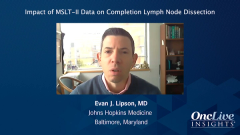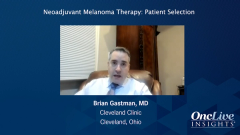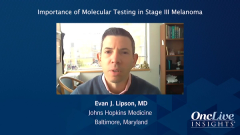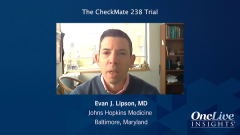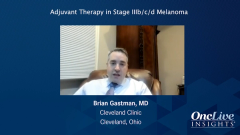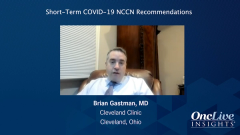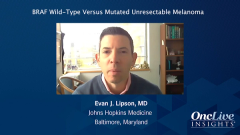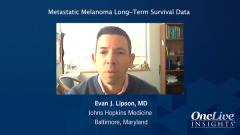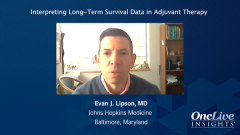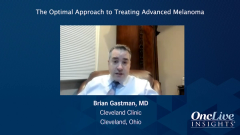
Long-Term Survival Data in Adjuvant Therapy
Episodes in this series

Evan J. Lipson, MD: One of the questions we often are asked is about how to interpret the long-term outcome data when selecting an appropriate approach for patients, particularly in the adjuvant setting.
This is not an easy comparison for several reasons. The major studies that have looked at the efficacy and safety of some of the more recent therapies that have been developed: BRAF/MEK therapy, anti–PD-1 therapy, etc. Each of those trials investigated a slightly different population in some cases, and each of them had slightly different metrics. It’s often difficult to compare these when you look at them head-to-head.
If you look at the progression-free survival curves of the targeted agent trials vs the immunotherapy trials, for example, the outcomes appear to be in the same ballpark. When patients ask us which approach we would recommend, we don’t typically have a strong feeling either way strictly in terms of efficacy. There is not a strong signal that one therapy or the other is going to give you much better outcomes based on the data that we have so far. A lot of the conversation that we have regarding preference revolves around long-term analysis of safety and an assessment of what else is going on with the patient, like immunological comorbidities, for example.
For whatever we recommend to our patients based on the long-term outcomes data, be that targeted therapy or anti–PD-1 therapy, we are on solid ground when it comes to efficacy. The decisions are often based on what the potential risks are for a particular patient, how we think we can best keep the patients safe, and unfortunately right now in the COVID-19 [coronavirus disease 2019] era, what some of the considerations are in terms of keeping patients either out of the health care setting or minimizing the number of visits they have to see us.
Transcript edited for clarity.


